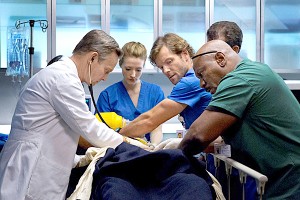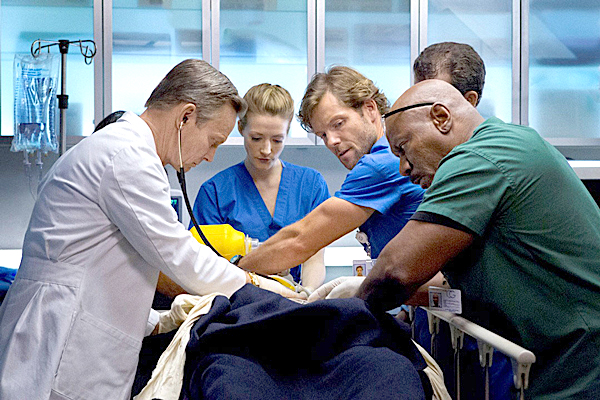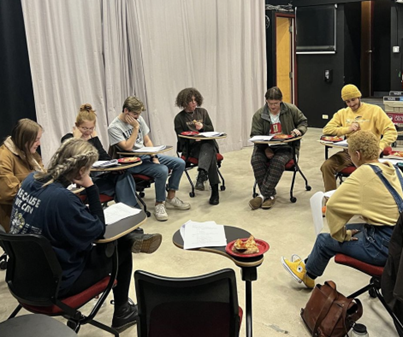
“Monday Mornings,” TNT’s newest medical drama, chronicles the lives of the surgeons working at Chelsea General Hospital. The new series focuses on the weekly “Morbidity and Mortality” meetings, held every Monday morning at the hospital, in which the doctors must explain the details behind cases in which their patients have died. In most cases, these deaths turn out to be the fault of the attending physician—a factor which makes for an incredibly dramatic pilot episode.
Drama is what this new series does best. Between suspenseful surgeries, traumatic ER scenes and heated arguments, the pilot episode is never without it. Most intense are the scenes from the ‘M and M’ meetings. These segments contain the perfect amount of silence and friction to create truly electric moments.
The pilot episode is also cinematically dramatic, with the use of intensely bright colors, intriguing camera angles and creative transition and flashback sequences. This gives the new series a unique, almost filmic vibe. The creative use of cinematography also adds to the intensity of some of the more dramatic scenes. Visually, the pilot episode is always interesting, especially when compared with other current medical dramas on television today.
Unfortunately, the pilot episode lacks in character development. The only character viewers learn something substantial about is Sydney Napur (Sarayu Rao), a feisty cardiothoracic surgeon whose engagement falls through because she’s married to her job. Other than that, the audience is given only brief snippets about the lives and personalities of the characters on the show. Overall, viewers may find that at the end of the episode, they will barely remember the characters’ names.
What the new series lacks in development it makes up for in performance—mostly. Most notable is Alfred Molina (“Spider-Man 2”) as the cold-hearted chief of surgery, Harding Hooten. Molina’s enactment is chilling and convincing, making Hooten a character feared by the viewers as well as the physicians on the show. Additionally, Ving Rhames (“Pulp Fiction”) shines on the small screen as Jorge Villanueva, a gruff trauma surgeon who knows better than everyone. Rhames approaches his role with discipline and fervor to create a character that is both endearing and intimidating.
Yet what sets “Monday Mornings” apart from other current medical dramas is the series’ focus on the decisions made by surgeons on a daily basis. The depiction of the hospital’s weekly “Morbidity and Mortality” meetings provides viewers with a unique inside look to the complicated system of the medical field. While other series focus on the process of diagnosis, the intensity of surgery itself or the pressure of the emergency room, “Monday Mornings” emphasizes the difficulty of making life or death decisions concerning the treatment of patients. Overall, this creates a new experience for viewers—and one that is both distinctive and thrilling.
As a whole, “Monday Mornings” is creative, cinematically interesting and well cast. In essence, the pilot episode contains many of the factors necessary to create a successful medical drama. If character development improves throughout the first season of “Monday Mornings,” TNT may have television’s next “ER” or “Grey’s Anatomy.”











